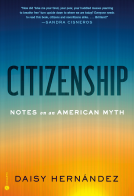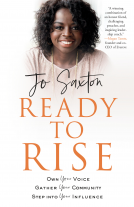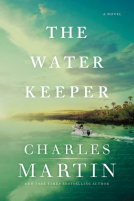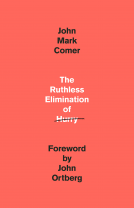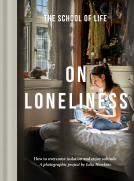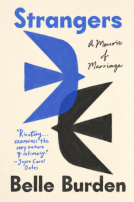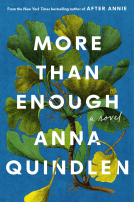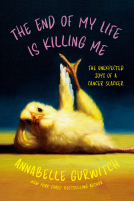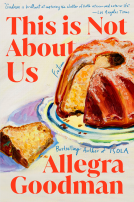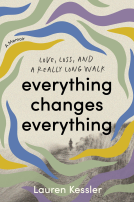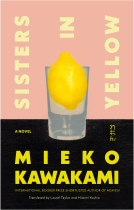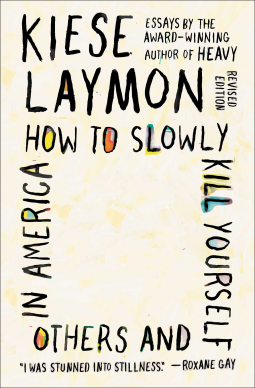
How to Slowly Kill Yourself and Others in America
Essays
by Kiese Laymon
This title was previously available on NetGalley and is now archived.
Send NetGalley books directly to your Kindle or Kindle app
1
To read on a Kindle or Kindle app, please add kindle@netgalley.com as an approved email address to receive files in your Amazon account. Click here for step-by-step instructions.
2
Also find your Kindle email address within your Amazon account, and enter it here.
Pub Date Nov 10 2020 | Archive Date Oct 12 2021
Description
A revised collection with thirteen essays, including six new to this edition and seven from the original edition, by the “star in the American literary firmament, with a voice that is courageous, honest, loving, and singularly beautiful” (NPR).
Brilliant and uncompromising, piercing and funny, How to Slowly Kill Yourself and Others in America is essential reading. This new edition of award-winning author Kiese Laymon’s first work of nonfiction looks inward, drawing heavily on the author and his family’s experiences, while simultaneously examining the world—Mississippi, the South, the United States—that has shaped their lives. With subjects that range from an interview with his mother to reflections on Ole Miss football, Outkast, and the labor of Black women, these thirteen insightful essays highlight Laymon’s profound love of language and his artful rendering of experience, trumpeting why he is “simply one of the most talented writers in America” (New York magazine).
Available Editions
| EDITION | Other Format |
| ISBN | 9781982170820 |
| PRICE | $16.00 (USD) |
| PAGES | 176 |
Average rating from 25 members
Featured Reviews
Thank you to Scribner and NetGalley for the Reader's Copy!
Available Nov 10 2020
What a joy it was to revisit Kiese Laymon's extraordinary collection "How to Slowly Kill Yourself and Others in America" in the continued aftermath of 2020. Through letters and essays, Laymon recollects his journey through academia, publishing and teaching. There were some laugh out loud moments and many more emotive, tearful moments. Overall, Laymon has penned a love letter to his mama, his hood and, above all else, to Black male joy. A much needed book during these evermore challenging times.
A revised version of Laymon's 2013 essay collection by the same name. His memoir, Heavy, is the book I most revere from the last couple of years, so it was no surprise when this collection affected me.
I feel some discomfort reviewing Laymon’s work (and the work of many other Own Voices writers). Because it’s not written to or for me. In the publishing sense, I suppose they want white, suburban women to buy his books. But his artistry isn’t for me. So who am I to evaluate it? That said, one of the reasons I feel able to melt into the paragraphs of these essays is because he doesn’t interject his examination with exposition for readers like me. When, within an essay about the impact of hip-hop on southern Black boys, he references an 80’s rapper who millennial white women like me probably aren't familiar with, he doesn’t pause to provide context. His words flow and sweep. It’s on me to note the references I didn’t pick up, and research those later. The white audience’s responsibility doesn’t start and end with reading the pages.
But back to this collection as a whole. The essays manage to (seemingly) effortlessly synthesize inner experience with macro cultural context. They’re self interrogating. Laymon does what we should all do: offers himself grace and also expects himself to grow. I feel honored to have been able to look inside his family and his life through these pages.
Kiese Laymon, I believe, is one of the most important living American writers. This collection of thirteen essays is revised from his original collection in 2013 and includes six new and timely essays. Laymon candidly discusses the frustrating process of having to buy back the rights to his essay collection from the original publisher. Born and raised in Mississippi, Laymon writes about his connection to the state as well as his experiences living as a Black man in academia in the South. He looks at football, hop-hop, family relationships, and personal experiences through the lens of race, class, politics and Covid in America. His intelligence, humor and honesty shine through each essay. How to Slowly Kill Yourself and Others in America should be required reading in this country and having only read Heavy, I am eager to read everything Laymon has ever written and I eagerly await his next publication.
I have loved everything I've read by Kiese Laymom so when I saw that he was rereleasing this book with additional essays I jumped on it and it did not disappoint. He speaks so poignantly in all his writing and this was no exception.
With the exception of his essay in The Fire This Time, I had yet to really sit down and read Kiese Laymon's writing, until now. Halfway through the essays in How To Slowly Kill Yourself and Others in America, I paused to head over to Goodreads and add his entire backlist to my to-be-read list.
Laymon's writing is so commanding. Even when talking about sports (something I don't care much about), I had trouble putting this book down because, in Laymon's hands, the essay is never about "just sports"—or "just" anything. He digs in far beyond the surface and creates connections people often miss (due to privilege, lack of interest, white supremacy, or any number of reasons).
I highlighted so much in this book, but I don't have anything coherent to say about those highlights just yet. A few moments in particular:
- the phrase "the politics of American dreaming"
- describing Black boys as "being born on parole" and "growing up on parole"
- symbolic change and empty gestures versus real solutions and tangible change, and how this is connected to white supremacy/savior complexes
I have a lot of thinking to do, and that's something I'm thankful for. The way Laymon sees others, and the way he reflects inwardly, is powerful stuff. I strive to be that perceptive and honest with myself.
This breathtaking essay collection is a revised edition of Laymon’s 2013 release of the original. There are 13 essays in the collection, six new, 7 from the original edition. The collection is a unique walk through the author’s life, Southern American culture and critiques of American society. Each essay is written in a format that fits the subject. For instance the essay, Hey Mama is unfolded over an exchange of emails between Laymon and his mother. The influence of the author’s family is felt throughout the collection as he recounts conversations and interactions with his grandmother, uncle, mother, aunts and cousins. Each of these memories leads to a greater concept that the author explores in the essay.
The collection is engrossing and had me hooked from the first page. I consumed 3 essays during my first reading. I had to slow my pace to read only one essay per day so that I could enjoy the experience.
The title of this collection is also the binding theme. In each essay, Laymon skillful examines how death/killing is affecting individuals in America i.e global pandemic, police brutality, crime, etc.
Anyone who is a fan of Kiese Laymon’s memoir, Heavy will enjoy this essay collection. Many people and incidents mentioned in Heavy are discussed and presented in a different way in this collection. Also, lovers of essay and nonfiction will enjoy this collection.
I was given the opportunity to review an advanced copy of this book via NetGalley.
The author used his own experiences to write a deeply personal and impactful collection of essays. I felt a range of emotions as I read and feel as if I learned a lot along the way!
With six new essays, the revised edition of 𝘏𝘰𝘸 𝘵𝘰 𝘚𝘭𝘰𝘸𝘭𝘺 𝘒𝘪𝘭𝘭 𝘠𝘰𝘶𝘳𝘴𝘦𝘭𝘧 𝘢𝘯𝘥 𝘖𝘵𝘩𝘦𝘳𝘴 𝘪𝘯 𝘈𝘮𝘦𝘳𝘪𝘤𝘢 by writer and cultural critic Kiese Laymon offers unvarnished, sometimes painful, and always insightful observations on family, race, politics, and popular culture.
He interrogates his experiences and his reactions so honestly and communicates so powerfully and creatively, it’s impossible to be unaffected by his prose. The writing style here is similar to that in 𝘏𝘦𝘢𝘷𝘺, his celebrated memoir, so if you liked it, you’ll enjoy this as well. If you haven’t read Laymon before, this essay collection, which can be read in any order, offers an excellent entre into his work.
From Mississippi, Laymon positions himself as a Southern writer, and his revelations about the Mississippi state flag and confederate flag showed how hurtful these symbols and others like them can be. A bit of good news is that Mississippi voters approved a new flag design last week. Changing the symbol is only a first step.
In another essay, he notes that after an encounter with the police, he realized that “blackness is probable cause.” Until the institutions and systemic racism that enable such attitudes from police, changing symbols is important, but still only a superficial act, just as how Biden’s election opens a door to change but in itself solves nothing.
The revised edition goes on sale tomorrow, and I encourage you to add it to your reading list.
 Trish R, Librarian
Trish R, Librarian
I've read about anti-racism, America's racist history, possible solutions to our race issues, and fictional books centered on racism and black lives, and Kiese Laymon's writing hits deeper than most. He writes so well, with such compassion and vulnerability about his own life, and what it means to be a black man in America. "Heavy" laid heavily on my heart in a way few other books have. These essays placed a knot in my gut and tears in my eyes. We talk about race in America like it's an unsolved math equation, these essays are a good reminder that it's a human problem with real, ongoing consequences.
A revised and rereleased collection of essays from Kiese Laymon that reckon with life and love and radical friendships.
Kiese can write. This collection is really good. The essays function fully on their own and relate to each other in ways that enhance the text and the reader’s experience of it. While the topics are ranging there is a feeling that vibrates through out. The ways in which Laymon interrogates his reality is thrilling to read. I wish my brain worked like his.
I read the previous version of this book and really enjoyed it. The first version was messier. It was scrappier. It dealt with public figures in a way that this revision does not. It felt very 2013. I’m not sure the essays were as good last time, but I’m not sure better essays necessarily make a better collection. This revision has a confidence that you can feel. I trusted Laymon more. I was curious about his choices and changes. The essays are broader. Bigger. More in touch with a feeling versus a time.
I hadn't read the original version of this essay collection, but I knew that Kiese Laymon is a genius and that his writing is stunning. That in mind, this collection STILL utterly blew me away, and I appreciated its updated structure that began with COVID-19 reflections and all its consequent horrors. (Thanks to NetGalley for the eARC.)
Kiese Laymon is the writwe that makes you believe he is your beat friend. His vulnerability is palpable in this revised collection of essays. As a black woman and lover of black men, I felt a great sense of pride knowing that he reclaimed ownership of his work and was able to present the way he envisioned. Much like his memoir Heavy, I felt privileged to have a glimpse into the mind of the black man. So often he his not allowed to be imperfect, feel weak, or encouraged to ask for help and the various essays presented shouts to black men that it's okay to be human. America doesn't give you the right too much of anything when you are born on parole based on the color of your skin but you are a human with feelings and expectations. You will fall but you always stand up. Thank you Kiese, the publisher and NetGalley for this copy in exchange for an honest review.
Readers who liked this book also liked:
Annabelle Gurwitch
Biographies & Memoirs, Health, Mind & Body, Humor & Satire
Benjamin Reynaert
Arts & Photography, Home & Garden, Reference
